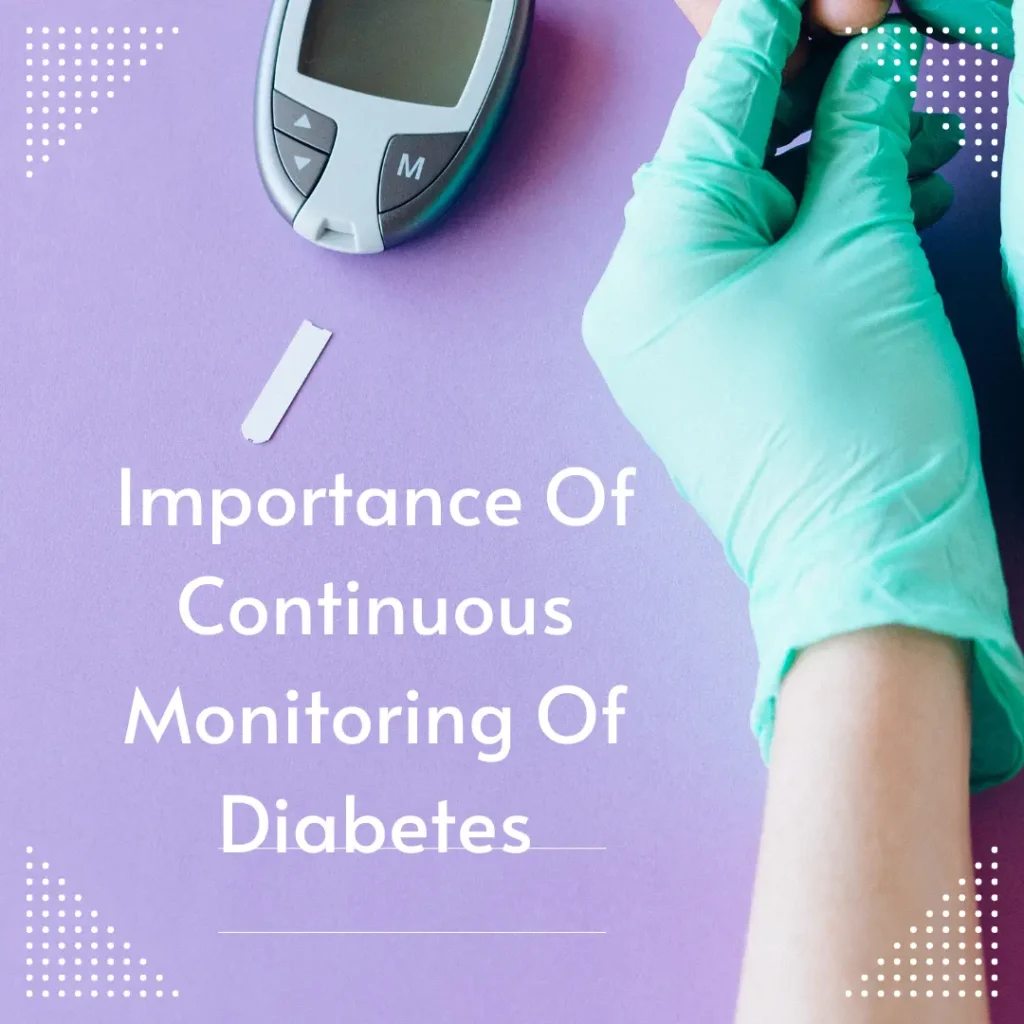
7 Game-Changing Tips to Revolutionize Your Healthy Living with Diabetes

Table of Contents
ToggleLifestyle Changes for Diabetes: Tips for a Healthier, Balanced Life
Living with diabetes can be a daily challenge, but it doesn’t mean you have to compromise on your overall health and well-being. With the right strategies and lifestyle adjustments, you can revolutionize your approach to healthy living while effectively managing your diabetes. In this article, we’ll explore seven game-changing tips that will help you take control of your health, boost your energy, and live your best life with diabetes.
1. Prioritize Your Nutrition

Eat a Balanced Diet:
-
- Fill half your plate with non-starchy vegetables, like leafy greens, broccoli, and peppers.
-
- Include lean protein sources, such as poultry, fish, tofu, and beans.
-
- Opt for whole grains, like quinoa, brown rice, and whole-wheat bread.
Count Carbohydrates:
“Understanding and managing your carbohydrate intake is crucial for maintaining stable blood sugar levels.” – Diabetes Specialist.
-
- Learn to read food labels, paying attention to serving sizes and total carbohydrates.
-
- Consult with a registered dietitian to create a personalized meal plan.
-
- Consider using smartphone apps or digital tools to track your carbohydrate intake.
Limit Processed Foods and Added Sugars:
-
- Minimize or avoid sugary beverages, candies, and desserts.
-
- Opt for whole, unprocessed foods to reduce your intake of hidden sugars, unhealthy fats, and sodium.
-
- Choose natural sugar alternatives like stevia for maintaing diabetes level
2. Stay Active, Stay Fit

Find Exercise Activities You Enjoy:
-
- Engage in activities that elevate your heart rate, such as brisk walking, cycling, or swimming.
-
- Incorporate strength training exercises to build muscle mass and improve insulin sensitivity.
-
- Aim for at least 150 minutes of moderate aerobic exercise per week, along with two or more days of strength training.
Monitor Blood Sugar Levels During Exercise:
“Regular exercise has tremendous benefits for managing diabetes, but it’s essential to monitor your blood sugar levels for optimal safety.”
-
- Check your blood sugar levels before, during, and after exercise.
-
- Adjust your food intake or insulin dosage based on your glucose readings and activity level.
-
- Carry fast-acting carbohydrates, like glucose tablets or fruit juice, in case of low blood sugar emergencies.
Stay Active Throughout the Day:
-
- I Incorporate more movement into your daily routine by taking the stairs, parking farther away, or going for short walks after meals to keep your diabetes in check.
-
- Use a standing desk or take breaks to stretch and move every hour.
3. Prioritize Stress Management

Practice Mindfulness and Relaxation Techniques:
-
- Engage in deep breathing exercises, meditation, or yoga to reduce stress levels.
-
- Set aside time each day for activities that bring you joy and relaxation.
-
- Consider joining support groups or counselling to manage emotional well-being.
Get Sufficient Sleep:
“Prioritizing good sleep is essential for overall health and diabetes management.” – Sleep Specialist.
-
- Aim for 7-9 hours of quality sleep each night.
-
- Establish a bedtime routine and create a sleep-friendly environment.
-
- Avoid electronic devices, caffeine, and large meals close to bedtime.
4. Stay Consistent with Medication and Monitoring

Take Medications as Prescribed:
-
- Follow your healthcare provider’s instructions for medication dosage and timing.
-
- Set reminders or use medication management apps to stay on track.
Regularly Monitor Blood Sugar Levels:
“Regular monitoring of blood sugar levels empowers individuals with diabetes to make informed decisions about their daily management.”
-
- Check your blood sugar levels as recommended by your family doctor.
-
- Keep a record of your readings and discuss them during your medical appointments.
5. Build a Supportive Network

Seek Emotional Support:
-
- Share your experiences and concerns with trusted family members, friends, or support groups.
-
- Consider joining online diabetes communities for guidance and encouragement.
Involve Your Loved Ones:
“Involving your loved ones in your diabetes management can foster a supportive environment and help you adhere to your treatment plan.”
-
- Educate your family and close friends about diabetes and its management.
-
- Encourage them to join you in making healthy lifestyle changes.
6. Stay Educated and Empowered

Stay Informed About Diabetes:
-
- Seek reliable sources of information, such as reputable websites, diabetes associations, and healthcare providers.
-
- Attend diabetes education programs or workshops to expand your knowledge.
Understand Your Numbers:
“Understanding your lab results and diabetes-specific numbers enables you to actively participate in your healthcare decisions.”
-
- Familiarize yourself with key numbers, such as HbA1c, blood pressure, and cholesterol levels.
-
- Work with your healthcare provider to set realistic goals and track your progress.
7 Schedule Regular Check-ups

Stay Committed to Medical Check-ups:
-
- Regularly visit your doctor for diabetes management check-ups.
-
- Discuss any concerns or questions you may have during these appointments.
-
- Follow your doctor’s guidance regarding eye examinations, dental check-ups, and other routine screenings.
Conclusion
By implementing these game-changing tips, you can revolutionize your healthy living with diabetes. Prioritize your nutrition, stay active, manage stress, be consistent with medications and monitoring, build a supportive network, stay educated and empowered, and schedule regular check-ups. Remember, managing it doesn’t mean compromising on a vibrant and fulfilling life. Embrace these tips to thrive and lead a healthier and happier life.
FAQs
-
- What Are the Best Foods for Diabetics to Eat?
-
- Focus on non-starchy vegetables, lean protein, whole grains, and limit processed foods and added sugars.
-
- How Can Exercise Help to Manage it?
-
- Exercise improves insulin sensitivity, aids in weight management, and helps regulate blood sugar levels.
-
- What Are Some Effective Stress-Management Techniques for diabetes ?
-
- Techniques like deep breathing, meditation, yoga, and regular physical activity can significantly reduce stress.
-
- How Often Should I Monitor My Blood Sugar Levels?
-
- The frequency depends on the type of diabetes and treatment plan. Discuss with a healthcare provider for personalized advice.
-
- How Can I Involve My Family in My Diabetes Management?
-
- Educate them about diabetes, encourage healthy lifestyle changes together, and seek their support in your routine.
-
- What Should I Know About Diabetes Medications?
-
- Understanding the types, timing, and effects of your medications is crucial. Regular consultations with your doctor are recommended.
-
- Why Are Regular Check-Ups Important for Diabetics?
-
- They help in monitoring the overall health, adjusting treatment plans, and catching any complications early.
-
- How Do I Stay Informed and Empowered About Managing My Diabetes?
-
- Seek information from reputable sources, attend educational programs, and actively engage with your doctor.
